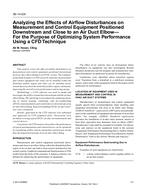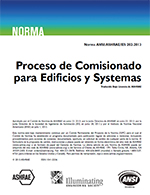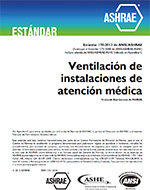Description
This analysis covers the effect of airflow disturbances on measurement and control equipment positioned downstream of an air duct elbow fitting in an HVAC system. The computational fluid dynamics (CFD) research separates measurement and control equipment into what can be installed within the disturbed airflow region and what can be installed downstream but away from the disturbed airflow region; ultimately, improving the overall system performance and saving energy. Methodology: a CFD software was used to model and investigate the airflow streamlines downstreamandthe air duct elbow fitting. The aim being to investigate the optimal positioning of typical heating, ventilating, and air-conditioning (HVAC) instrumentation and control devices downstream of an air duct elbow fitting.
Typical in buildingsHVACair duct velocities were considered. Results: generated by the CFD software were tabulated and supported by CFD graphical plots. Discussions were included covering typical HVAC air duct instrumentation and control devices.
Conclusion:theCFDanalysisshowedhowtheperformance of typical instrumentation and control devices can be optimized by considering airflow velocity stream lines and pressure stream lines developed downstream of an air duct elbow fitting.
Citation: ASHRAE Transactions – Volume 120, Part 2, Seattle, WA
Product Details
- Published:
- 2014
- Number of Pages:
- 9
- File Size:
- 1 file , 2.9 MB
- Product Code(s):
- D-SE-14-028




